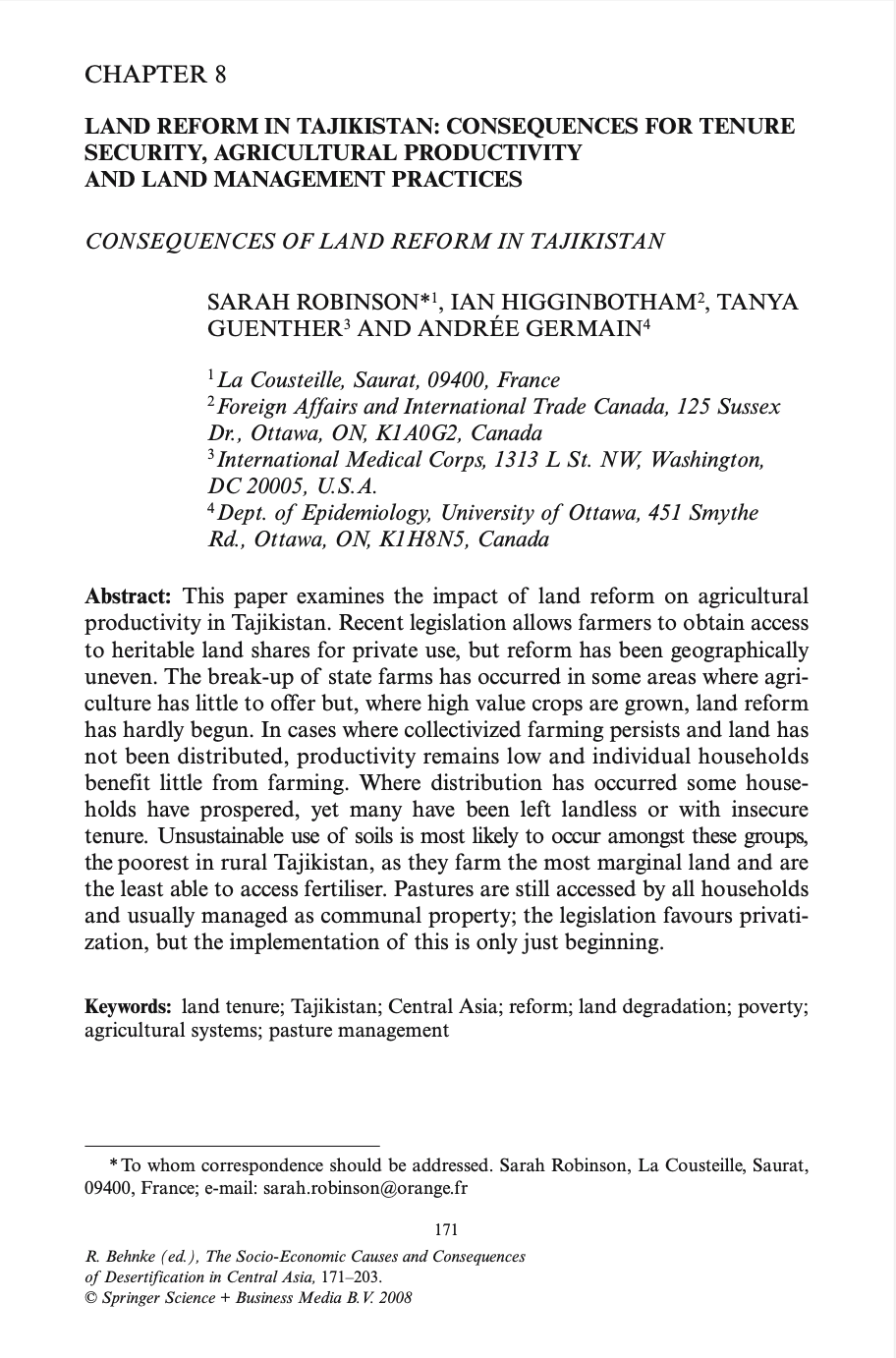Resource information
This paper examines the impact of land reform on agricultural productivity in Tajikistan. Recent legislation allows farmers to obtain access to heritable land shares for private use, but reform has been geographically uneven. The break-up of state farms has occurred in some areas where agriculture has little to offer but, where high value crops are grown, land reform has hardly begun. In cases where collectivized farming persists and land has not been distributed, productivity remains low and individual households benefit little from farming. Where distribution has occurred some households have prospered, yet many have been left landless or with insecure tenure. Unsustainable use of soils is most likely to occur amongst these groups, the poorest in rural Tajikistan, as they farm the most marginal land and are the least able to access fertiliser. Pastures are still accessed by all households and usually managed as communal property; the legislation favours privatization, but the implementation of this is only just beginning.

